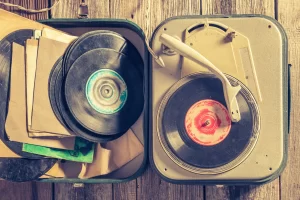Preparing and planning for a song release is one of the arduous tasks in any musician’s career. It calls for serious networking, emailing, designing music formats, and even making countless phone calls. The whole process can take you from weeks to months of daily arrangements.
It’s a tedious and wearing job, but the results can take you to the juicy path of fortunes if planned and executed right. Whether you want to release an album, mixtape, or a single, there are several items that you must consider to make the best hit.
In this write-up, we will take you through a checklist that will help you release your music.
What is the Most Appropriate Time to Release a Song?
One of the most crucial activities for every musician is identifying or determining the best time of the week, year or month to release your hit song. It calls for analyzing every project to identify the opportune moment.
For instance, it’s not a good idea to release a song bearing the new year’s message in July. But releasing the hit at the start or the eve of the year would blend with the season’s mood.
Global Release Day
As for the specific day of the week, Friday is unofficially known as the global release day in the music industry. Therefore, it is customary for most artists to drop their hits on this day to benefit from the weekend traffic and airplay.
Also, most charts like Billboard track the performance of songs from Friday to Thursday. Therefore, releasing your song on a Friday will give it an extra day to perform and earn a slot in the competitive weekend charts.
Finally, Friday is when subscription services like Apple Music and Spotify release their new songs to the public. Many subscribers start their weekend by scrolling through these apps for new songs to listen to, so releasing your project on this day will ensure maximum visibility. If you want to get on these platforms’ playlists, you should consider releasing your songs on a Friday as well.
Preparing Your Release Schedule
When crafting your release checklist, remember to indicate the release date and the theme of the release activities. Also, it’s wise to break down the activities and the schedule into, say, three categories:
- pre-release
- release day
- post-release
Pre-release Activities
These are the things that you should undertake before releasing your song.
1. Set Your Release Date
After your songs have passed the production and post-production phases, you’ll have several things to do before releasing them. You need to consider the following as you schedule the release date to give it enough time to meet all necessary pre-release requirements.
For a single release, it’s recommended that you set the date one to two months away from the time of your writing of the release plan. It would go without saying that more extensive projects such as mixtapes would automatically require more time due to their complex nature. Give them at least 3-6 months.
2. Draft a budget
After you have set and jotted down the release plan, do some research and approximate the cost of the activities. Making prior research will help you save time, cut costs, and avoid inconveniences.
3. Album/ Cover Art
Most of the time, the artwork goes hand in hand with audio files. Therefore, make a plan to prepare your artwork early enough to avoid inconveniences. Depending on the artwork designs that your project needs, you may require some more activities to complement the artwork. For example, if you plan to have your artist’s image as your album cover, you need to plan for photoshoot services. But if you choose to outsource the album cover to a graphic designer, you will need to find out the time it takes. All these activities are accounted for when setting the deadline for your song release. Probably, you can allocate one to two weeks to the artwork.
4. Get Your Music Prepared
There are numerous and different avenues and online platforms that blend with different music formats. For instance, Spotify offers a free version to a wide range of devices and ad-free premium accounts of ($5) and best for students. Also, there is Apple music, exclusive to Apple users but still compatible with Windows and Android users.
Streaming platforms that emphasize high-quality music would demand your audio files in Waveform audio file format (Wave format).
On the other hand, when sending audio over the internet, MP3 is more convenient following the size of the files. It’s also helpful to have a music converter, and you can download one online.
Additionally, you may need radio edits when doing a radio release. These early preparations prove prudent, not forgetting to fill your song’s metadata appropriately before sending it anywhere. Metadata is vital, especially for television and radio, as it assists in distinguishing your songs from other available audio files in their gallery.
If you are on album compilations and EPs, ensure that you have prepared and allocated time for reproduction if you want to make physical music copies like CDs and DVDs.
5. Merchandise
If you have been to a concert and they give hoodies or t-shirts with the artist’s name, that’s the whole idea behind merch. These items are not hard to make, and though they are significant souvenirs for enthusiasts, they also go a long way to market your brand. Do you intend to incorporate merch in your production? Ensure that all is well-planned before the release date. Check out both cost and time implications for your merchandise. It’s recommended you give it 2-3 weeks to the release date.
6. Distribution
With the current technological advancements, it’s simpler to have your hit on online galleries and streaming services globally. If you are a local artist yearning to have a global reach, distribution is your next anchor. Platforms like Spotify, Deezer, and Apple Music would offer you the right footing to establish your brand on the international stage. A distributor comes to make the dream true.
Factors to Consider When Choosing a Distribution Service
You have to consider several factors as you select distribution services.
1. Their Pricing Structure
The cost implication is always an essential item when choosing a distribution service. There are also several aspects that you should consider:
- Different distributors operate under diverse business models. Most offer a royalty-fee cut, but annual or monthly charges may come with it.
- The cost is also determined by the number of releases you have and the number of digital stores you might want to get your hits on.
- Some offer one-off fees, while others offer recurring fees.
- Some distributors offer 100% profits from your sales but remember, they recover in other ways.
Here, the idea is to have an exact amount you are supposed to pay and the services for your money. Always be keen on hidden charges.
2. The quality of Customer Support
The quality of customer care services is a make-or-break pointer for every venture. Let’s say your release showed up on another artist’s music page. Will you want to wait for days to receive an email response from your distribution service provider?
Ensure that you work with an easy-to-reach company that offers timely services. It shouldn’t take longer than your patience can hold. You can test their services by first emailing them to inquire about what they offer. Also, get online and search for the company’s client reviews and once you get those red flags, do the necessary.
3. Choice of Digital Outlets Offered
Many music distributors offer almost a similar range of digital stores like Tidal, Spotify, Deezer, YouTube Music, etc. If you are hunting something unique, such as getting your songs on Tik Tok or Beatport, investigate if your distributor covers that.
Distributors constantly work to improve and add stores to their music roster. So before making a selection, ensure that you’ve verified that the data on your distributor’s page is legit and updated. If you are in doubt, make an effort and reach out to their customer care desk.
Compile An Email List
Before the release, you must create a mail list of the individuals you’ll forward your EPK to. The mail list should include music blogs, TVs, event organizers, etc.
Create The Hype
Before your release, ensure that your fan base knows that something is cooking and soon releasing. You can achieve this by sharing teaser clips on your social media platforms a week or two before release.
Have Your Music Distribution At Novecore
Novecore is the easiest way to sell and distribute your music across major global platforms. We help you get your music heard and make dollars, so that you can focus on your passion, making music, and entertaining your fans.
We’re always up-to-date with the ever-changing music production regulations to make sure you’re always fully compliant.
Our music distribution services help you get your music on all reputable platforms such as Deezer, Apple Music, SoundCloud, and Spotify. We believe in great experiences for artists who make great music.
Novecore protects your music from unauthorized downloads. Also, we allow you to access key data, monitoring your performance and earnings. We also make sure you receive regular payouts.
As a Novecore artist, you’ll receive a payment alert each month. You’re also able to request a Vevo account through out platform and design a premium image as a musician. Sign up today for free.
Marketing Tactics to Avoid
While you’ve probably heard that you should do “whatever it takes” to get your music career off the ground, there are some things you should avoid if you want to prosper in the music industry.
Playlist pitching
One of these things is working with a company that promises to get you featured on Spotify playlists in exchange for money. They might promise a certain number of spins or a guaranteed placement on a popular playlist, but this is not how Spotify works.
Spotify has strict rules against paying to get on a playlist, and if they catch you doing it, they could remove your music from the platform entirely.
Paying for followers & bots
Another thing to avoid is paying for followers or using bots to boost your engagement. This might seem like an excellent way to get some quick and easy results, but it will not help you in the long run.
Paying for followers will not lead to real fans that will support your music, and using bots can hurt your chances of being successful on social media. To build a lasting career in music, you need to focus on organic growth and making a real connection with your fans.
On the Release Day
These are the activities that you need to undertake on your song’s release day:
A. Keep Sharing
It’s time to make social media and other sharing platforms your best of friends. Now it’s time to share the real hit. Ensure that you engage with your fans on your pages by responding to their tweets and comments. Also, share widely via your email list, alerting your recipients of the new release. Update your media pages and official website.
B. Create Ad Campaigns
Premium ad campaigns work great for any business. Utilize them on your social media accounts to promote your song. Also, ads work well with Google affiliates such as YouTube. Do you find this tedious? Hire a professional and see your sales shoot.
C. Pitch Your Release for Playlist Consideration
Many success stories about artists who had their releases skyrocket, pitching their tracks to Spotify and platforms. Increase your chances in these spots by pitching your songs for playlist consideration. You can do this a week before the release date. While pitching a track, don’t forget to showcase its essential details, such as the genre and mood, to improve its landing on its most suitable playlist. Do not pay for placement on a playlist, this is strictly prohibited.
D. Launch Event
If you want your fans and enthusiasts to enjoy, interact and experience your new hit, offer a listening party. To get the best of it, ensure that you’ve prepared all required merchandise and hard copies for the event.
Post-Release Activities
Generally, most after-release activities pick up from the pre-release and release-day events. After releasing your song, ensure that you’ve kept sharing and building a more excellent fan base as much as you can. Seek new ways to share your songs through social media by utilizing all content and promotional tools. Diversify the ad campaigns as you hunt for more playlists to pitch your hit.
Make Follow-Ups
Once your song is in the market, it’s time to get back to the contacts you had sent EPK to. Check the responses you got and whether they realized your new release. Don’t nag! But schedule a dignified follow-up at a week’s interval. Also, respond with gratitude; the small steps should take you far.
Move Around
It is the next step to magnify your hits. Make prior communications with the concert venues and coordinate the event well. As you tour, ensure that your merchandise is ready. Also, carry the physical records that can help you increase profits.
Register Your Songs with Relevant Authorities
Ensure that every song you release is registered with the relevant rights organizations so that you get the revenue your song generates. Work with a publisher and enjoy collecting the revenue from your hard work.
Conclusion
Releasing a song is a costly affair. However, a good plan and strategy can take you to that successful end. Take time to craft your release plan taking care of every activity we’ve gone through.
Do you have songs that you want the world to listen to? Sign up at Novecore.com and create your first release.




